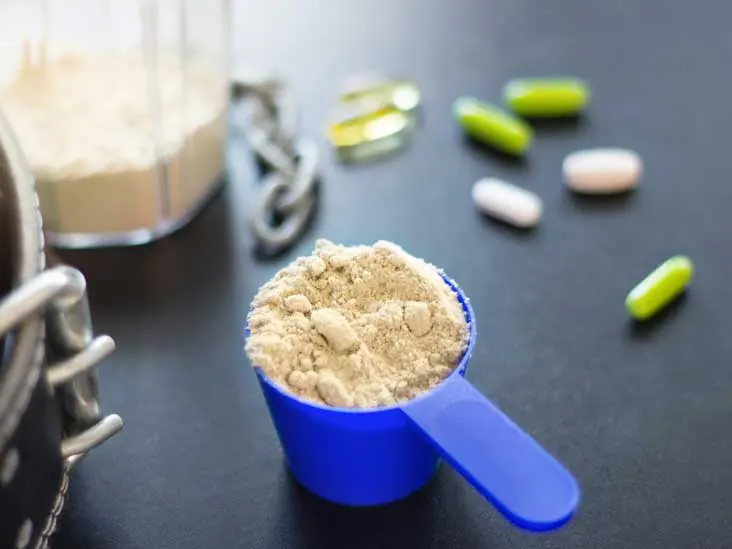
The best online fitness resource you'll ever need. We filter out the BS to ensure you meet your health and fitness goals!

The best online fitness resource you'll ever need. We filter out the BS to ensure you meet your health and fitness goals!

The short answer, yes, it does. But that’s not to say expiration has to be the end of the line for our dearly departed creatine.
If you want to perform well in any sport or athletic endeavour, you need your joints to be strong, supple and mobile.
An injury or lack of mobility in any of them can be ruinous – it doesn’t matter how strong your chest, anterior delts, triceps and core are, if you’ve got a wrist problem, you simply won’t be able to bench press properly, to your full capacity. Likewise, get as good as you want at football, and bring your strength and stamina up to the highest level possible, but if you’ve got an ankle injury or an immobile hip, again, you won’t be able to perform. Creatine can help with that.
Creatine is quite likely the most consumed sports supplement in history. This is actually a good thing – as there is more than enough research backing up its usage, and it is one of a very short list of supplements that can be said to over-deliver.
But if you are an avid consumer of creatine, a point may be reached when you have more than you can comfortably down in a timely fashion. The result? You may end up pouring your hard-earned cash down the sink, or directly in the trash.
So, is there a way you can bypass this? Or better yet, save your precious creatine? Read on to find out.
When raw materials are manufactured; in this case, creatine monohydrate (most likely), they carry a best before date, otherwise known as the expiration date. This date is a reflection of when the supplement/ formulation retains its maximum strength, after which the rate of degradation is increased significantly.
Thus, the expiration date printed on your jar of creatine is not a point at which the supplement turns to poison, but rather a date by which it should be consumed to ensure maximum potency. 5g of creatine consumed after the expiration date does not guarantee that you will be getting 5g, but more realistically less than that.

Physical storage is the number one determinant of when a supplement or other product will “go bad”. The factors that play a major role on the overall stability of creatine include:
We hope you didn’t sleep through too much of high school chemistry class for this. If you recall, solids have atoms and molecules fixed in an orderly arrangement. They move very little, colliding with each other minimally. You increase the heat available to these molecules/atoms, and suddenly they gain the kinetic energy to start moving about faster. Increased collision rate also increases the likelihood of breakdown products developing, especially if the product is heat sensitive.
Significant heat can even cause a change altogether in the stricture- just think of heating sugar enough so that is becomes a black, tar like mass that is no longer sugar.
To be specific, we are referring to sunlight, and not LED sources. Sunlight is comprised of different types of rays (such as gamma rays), which can alter the structure of specific compounds. This process, known as photodegradation, is a possibility with all supplements or medications which is why it is advised to have them avoid direct sunlight in most cases.
Exposure can lead to reduction in efficacy, affect kinetic properties or occasionally even render them harmful.
Moisture is probably the most troublesome of the factors which affects creatine’s expiration date, as a slew of things can go wrong when exposed to involuntary moisture. For one, liquid creatine is able to convert very easily to the breakdown product creatinine, rendering it ineffective.
Secondary to this, bacteria thrive in aqueous medium. This is why preservatives and even solubilizing agents are needs for products in this state. Hydrolysis – which is the breakdown of a molecule in the presence of water, can lead to undesired changes and speed up the best before date.
Although this may seem odd, vibrations can also render a supplement unstable. Creatine is very resilient in powdered form, but like heat, vibrations do increase the rate of molecular collision. Some amount of product breakdown will occur, even if on a small scale.
If you leave your product out on a shelf with direct sun exposure, or near to the sink where moisture can inevitably seep in, you are just asking for shortened product life.
For creatine longevity, keep in a dark container, in a cool area away from direct sun exposure, and protected from water. Even better yet, store in an air-conditioned room. Low temperatures delay the inevitable deterioration of the product.

For the most part, no, it won’t make you sick. That is of course, given that you let common sense prevail. If the product looks off, has a foul smell, or is discolored, you should steer clear. Artificial colors and additives can sometimes degrade in advance of the active ingredient and may cause you to toss it out prematurely.
For this reason, getting unadulterated creatine monohydrate is the way to go. The absence of additives means that you can gauge the state of the powder much more accurately.
At worse, if you do use creatine that should not have been used you may experience the stomach flu characterized by vomiting and diarrhea. It should not be life-threatening.
The answer to this may shock you and is in direct contravention of what “big pharma” and supplement companies will tell you. The truth is, yes it can. We are not saying you have to consume it though, since nobody is going to force you to use a product past the best before date.
Expiration dates help to provide the financial incentive for continuous product innovation by companies and are really meant to be safeguards to consumers.
But it would be a waste, and a little foolish to toss it out if all looks good. One major study conducted by the FDA and department of defense investigated if several medications truly needed to be tossed after the expiration date.
The findings led to over 88% of the samples having their expiration extended by at least one year until a next investigational study would be done.
As a pharmacist, I can also attest to this truth. I recall reading one study which discussed the stability of medications as long as 5 years past the initial expiration date. I do recall the study was in line with the same Department of Defense study cited above.
Indeed, only specific medications and formulations such as those in liquid form or whereby a specific concentration must be concentration attained for efficacy (such as antibiotics) should not be left to chance.
Dry powders that are free from additives will almost always be good for use past the expiration date.

An extremely fresh batch of creatine might have a shelf life of 5 years from the date of manufacture, but this also depends on how long the raw materials have been sitting around too. In certain countries, especially companies based in Asia, it is not uncommon to see batches of products with a short shelf life of 2 years.
This is owing to fewer restrictions on how fresh raw materials need to be before compounding into a finished product. In North America and Europe, their restrictions are much harsher (but better for consumers) with most products mandated to have an expiry of 5 years from the date of manufacture.
It is estimated that the US Federal government saves billions annually thanks to the Shelf Life Extension Program (SLEP) which is responsible for testing if products are truly no longer potent at the printed best before date.
To directly answer how long creatine can be kept, the simple answer is that no studies have been completed to verify this. The longest record of it being kept is about 2-3 years following the stated label date.
You could very well keep it much longer than that if you tightly control temperature, light and moisture settings, but in the real world this doesn’t happen to much, or it just isn’t worth it for something as cheap as creatine.
So, coming full circle, we answer the question;
Does Creatine Expire?
Yes, it does. But keep in mind that expired does not mean poison, or that it is unsuitable for use. Expiration dates may be safeguards to protect consumers against unscrupulous practices, but the good news is that you are very likely to still have a high-quality product at that point in time.
In reality, the expiration date is simply the point beyond which the product cannot be guaranteed to have full potency- it will not go from good to bad over the course of one day.
Remember to opt for a pure powdered form of creatine if it is available to maximize the stability of your product, and be vigilant to look out for telltale signs when it may be unsuitable for use.
But above all else; creatine is cheap. Should you have any doubts at all, just purchase a fresh tub of the powder and enjoy the most established supplement of all time.